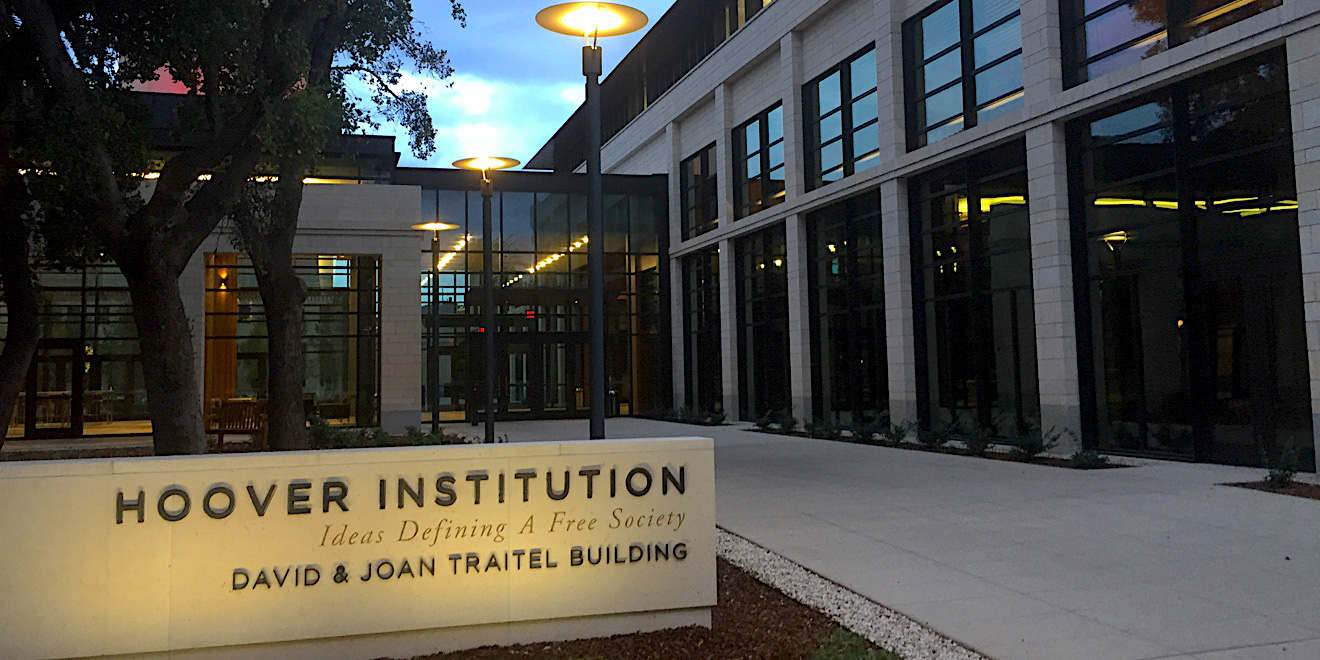Among the Hoover Institution’s 190 fellows for the 2018-19 academic year are eight Robert and Marion Oster National Security Affairs Fellows (NSAF): prominent military, defense and political leaders who conduct independent research relating to their respective professional interests.
This year’s fellows are Kevin Childs, David “Leon” Hall, Paul Krattiger, Todd Mahar, Greg Mendenhall, Timothy “Papa” Murphy, Jim O’Mara and Martin Oppus. All eight have served in various branches of the government and military.
The NSAF program encourages its fellows to conduct research that aligns with their areas of expertise in government or military for one academic year.
Admission to the NSAF program requires a direct nomination from a governmental branch. Hall, a strategic intelligence officer in the US Army with 28 years of prior military experience, was recommended for the fellowship by the Army.
Hall told The Daily that his family’s close connection to public service inspired him to enlist in the military at age 17.
“The two most influential men in my life, my grandfather and my brother, served in the military,” Hall said. “I didn’t expect the military to become a career for me, but I really fell in love with it in my early 20s.”
In 2013, Hoover expanded the NSAF program, creating a joint undergraduate mentorship program that pairs each fellow with a select group of undergraduates who express curiosity in learning about international politics but have no prior military or government experience.
Will Sweeney ’21, a participant in the mentorship program, highlighted how his interests in national security and public service prompted him to apply to Hoover’s program.
“When I was a kid, my favorite hobbies were to go home and read books on my favorite generals or watch the military channel,” Sweeney said. “I want to pursue a career in public service, whether it’s in the national security community or perhaps working for the DOD [Department of Defense]. As soon as I saw this program, I said, ‘I have to do this.’”
Once accepted, Sweeney was paired with Hall, whose research involves the study of classical military theory.
In addition to Sweeney, Hall is also mentoring Matt Klein ’19, Gabby Conforti ’21 and Jake Dow ’19.
“Working with Leon has been an incredible experience,” Sweeney said. “When they paired me with him, I immediately thought, ‘We have so many overlapping interests.’”
Klein, who is pursuing a major in political science, echoed Sweeney’s sentiments, emphasizing his appreciation for Hall’s guidance.
“Meeting Leon has been the best part of the program for me,” Klein said. “Whether it’s career advice or day to day things, he’s always there for us, and he made that very clear from the onset. You normally don’t have access to hearing someone’s personal story about their entire life, especially a high-ranking military officer.”
The feeling is mutual. Hall said he values the relationships he has built with the Stanford undergraduates participating in the mentorship program, describing his mentees as a “great bridge” between Hoover and the larger Stanford community.
Murphy, an NSAF fellow representing the US Air Force, also underscored his positive experience working with his group of six Stanford undergraduates.
“We sat down about a month ago and looked at our policy in Syria from a military strategy framework,” Murphy said. “It was neat showing them how we view situations and make decisions in the military based on what the political leadership wants to do. It was great to hear their input and see their reactions.”
Murphy, whose father also served as a pilot in the Air Force, shared how much he has enjoyed working with his mentees and introducing them to his own family.
“My kids can meet Stanford students and hear about the school and opportunities in the area — my wife and I are fascinated by that as well,” Murphy said. “And from [the mentees’] point of view, I think it’s been enjoyable for them to see what a military family is like and hear some stories that go along with that.”
Murphy further emphasized that spending time with Stanford undergraduates on a regular basis has greatly enhanced his experience at Hoover.
“It’s been awesome because we normally don’t get much interaction with students,” Murphy said. “That connection makes our time here much more worthwhile because we see what you all experience and the quality of people who are here at Stanford.”
Along with providing students with the chance to interact with successful military, defense and intelligence professionals, the NSAF Mentorship program hosts outside speakers from various governmental agencies and branches.
The program also offers fellows the opportunity to clarify potential false assumptions about the military in general, Murphy said.
“Like anything, there are misconceptions about people in the military — how they think, what they care about, how they work,” Murphy said. “Being able to resolve some of that and show college students that we’re humans, too, just like everyone else, has been really great.”
Despite the fact that the mentorship program is primarily regarded as a unique learning experience for students, Hall emphasized that the learning is reciprocal.
“My mentees have really given me a different perspective on what I may have originally thought of today’s college students,” Hall said. “They are driven, constantly seek new experiences and are engaged in the issues facing our nation … I feel proud to be associated with them and consider them all friends.”
Contact Alexandra Chang at alexandrachang ‘at’ stanford.edu.
This article has been corrected for a comma misuse.
